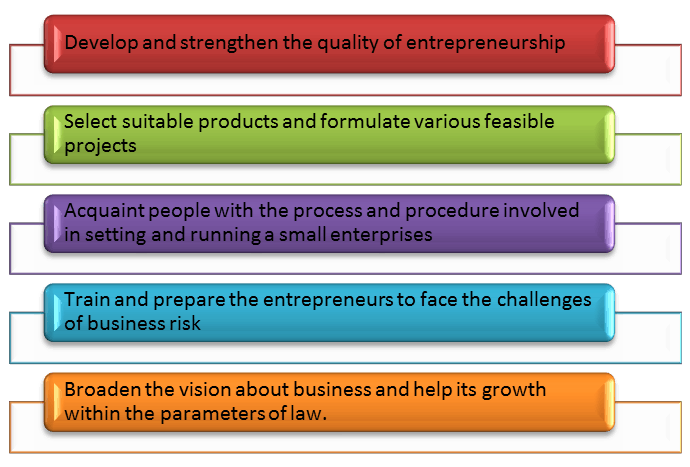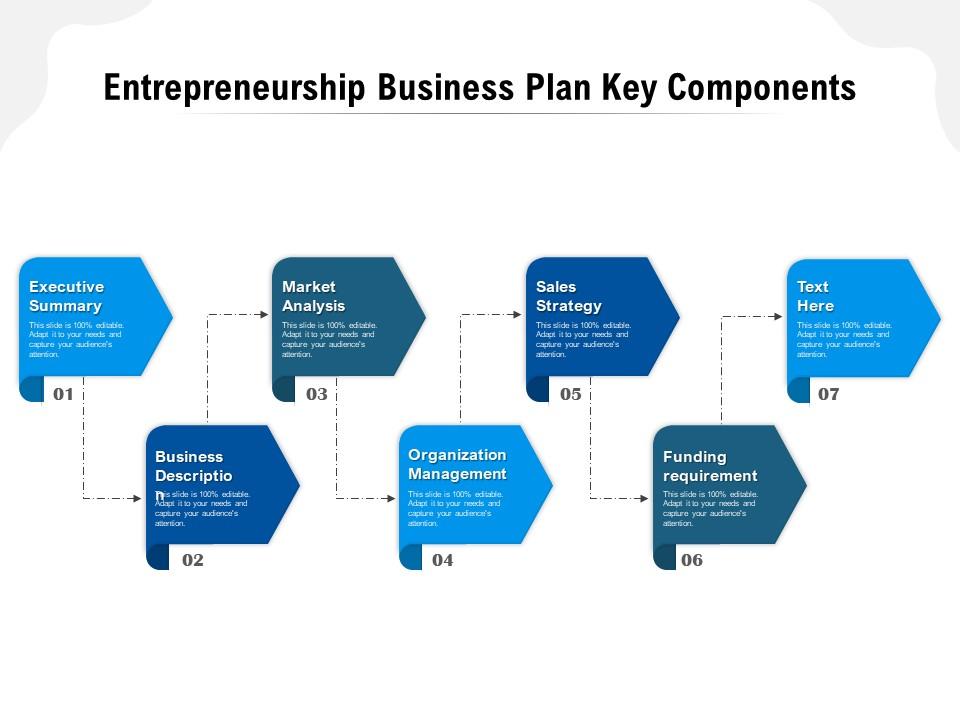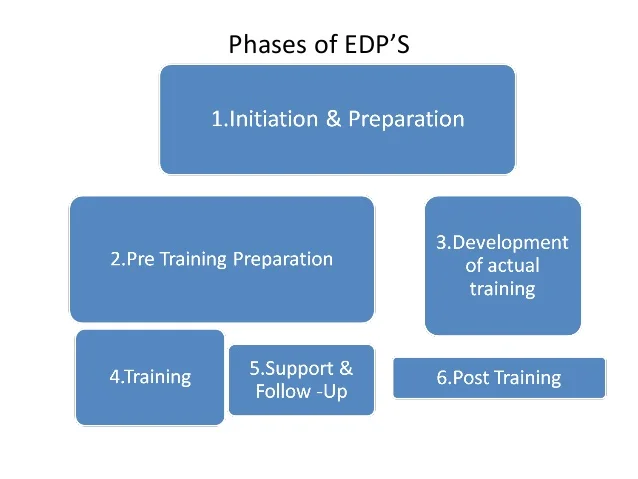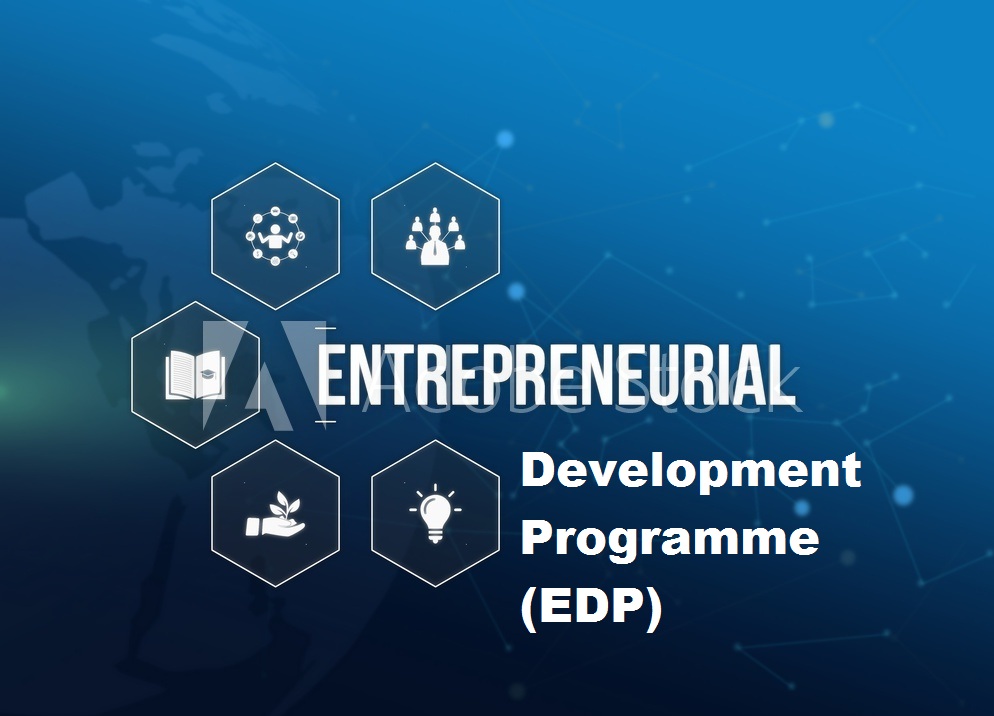Entrepreneurship Development Programmes (EDPs) have become a cornerstone in shaping the success of aspiring entrepreneurs. In today’s dynamic business environment, where innovation is the key to staying ahead, understanding the meaning and implications of EDPs is crucial.
Table of contents
Historical Background
To comprehend the significance of EDPs, we must delve into their historical roots. Originating from the need to cultivate business acumen, these programs have evolved to address the challenges of various eras.
Objectives of EDP

The primary objectives of EDPs encompass skill development, fostering innovation, and instilling a proactive mindset. These programs go beyond conventional education, aiming to create well-rounded entrepreneurs.
| Objectives of EDPs | Explanation |
| 1. Skill Development | Entrepreneurial Development Programs aim to enhance a diverse set of skills crucial for entrepreneurship. These skills include but are not limited to leadership, decision-making, communication, financial management, and problem-solving. |
| 2. Fostering Innovation | EDPs focus on cultivating a culture of innovation among participants. This involves encouraging creative thinking, problem identification, and the development of novel solutions. |
| 3. Instilling a Proactive Mindset | EDPs seek to develop a proactive mindset among aspiring entrepreneurs. This involves cultivating traits such as initiative, resilience, and a forward-thinking approach. Participants are encouraged to take calculated risks, learn from failures, and embrace change. |
| 4. Going Beyond Conventional Education | Unlike traditional educational approaches, EDPs go beyond classroom learning. They emphasize practical experiences, real-world simulations, and interactions with successful entrepreneurs. |
| 5. Creating Well-Rounded Entrepreneurs | The ultimate aim of EDPs is to produce well-rounded entrepreneurs who possess a combination of business acumen, technical skills, and a holistic understanding of the market. |
Key Components of EDP

Comprising training modules, mentorship programs, and networking opportunities, EDPs offer a holistic approach to entrepreneurial development. These components work in tandem to equip participants with the necessary tools for success.
Types of Entrepreneurship Development Programmes

EDPs manifest in various forms, ranging from government initiatives to private sector programs and educational institution-led initiatives. Each type caters to a diverse set of aspiring entrepreneurs.
Government Initiatives:
- Subsidized loan programs
- Grants and incentives for startups
- Skill development and training initiatives
- Regulatory support and simplification
Private Sector Programs:
- Incubators and accelerators
- Venture capital funding
- Mentorship programs
- Networking events and conferences
Educational Institution-led Initiatives:
- Entrepreneurship courses and degrees
- Workshops and seminars
- Business plan competitions
- Collaboration with industry experts
Success Stories
Highlighting success stories is paramount in showcasing the tangible benefits of EDPs. Real-world examples of individuals or businesses flourishing through these programs inspire others to embark on a similar journey.
Challenges in EDP Implementation
Despite their advantages, EDPs face challenges such as lack of awareness, accessibility issues, and difficulties in evaluation. Addressing these challenges is essential to enhance the effectiveness of these programs.
Benefits for Participants
Participants in EDPs not only gain enhanced business skills but also experience increased confidence and access to funding opportunities. These benefits contribute to the overall growth of aspiring entrepreneurs.
Global Perspectives on EDPs
Comparing EDP models globally provides insights into the diverse approaches taken by different countries. Understanding these perspectives enriches the overall landscape of entrepreneurial development.
Critiques and Controversies
Debates surrounding the effectiveness of EDPs exist. Addressing common criticisms head-on allows for a nuanced understanding of these programs and opens avenues for improvement. Adapting to emerging technologies and changing business landscapes is vital for the continued success of EDPs. Anticipating future trends ensures these programs remain relevant and impactful.
How EDPs Contribute to Economic Growth
Stimulating job creation and fostering a culture of innovation are two critical ways in which EDPs contribute to economic growth. These programs play a pivotal role in shaping the economic landscape of a nation.
Conclusion
Entrepreneurship Development Programmes are not just about creating entrepreneurs; they are about nurturing future business leaders. The multifaceted approach of EDPs ensures participants are well-equipped to face the challenges of the ever-evolving business world.
Readmore:
What is EDP in Entrepreneurship?
The Growth of Women Entrepreneurship
What are the Barriers to Entrepreneurship?
FAQs
The primary goal of an Entrepreneurship Development Programme is to equip aspiring entrepreneurs with the skills and mindset necessary to establish and grow successful businesses.
No, EDPs cater to a diverse audience, including both new and existing entrepreneurs. These programs provide valuable insights and tools for anyone looking to enhance their business acumen.
Enrollment processes vary but often involve application submissions through official channels. Interested individuals can check with relevant authorities, institutions, or organizations offering EDPs.
Absolutely. EDPs offer valuable resources and insights that can benefit existing businesses by enhancing their competitiveness, fostering innovation, and facilitating growth.

